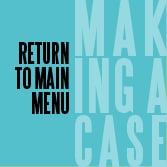- Heritage 101
- Advocacy
- Accessibility for Historic Places
- Climate & Sustainability
- Cultural Maps
- Heritage Place Conservation
- Heritage Policy & Legislation
- Homeowners
- Intangible Cultural Heritage
- Reconciliation
- Indigenous Cultural Heritage
- Setting the Bar: A Reconciliation Guide for Heritage
- 1. Heritage and Reconciliation Pledge
- 2. Acknowledging Land and People
- 3. Celebrating Days of Recognition and Commemoration
- 4. With a Commitment to Learn
- 5. Committing to Strategic Organizational Diversity
- 6. Mission-Making Room for Reconciliation
- 7. Possession, Interpretation, Repatriation and Cultural Care
- 8. Shared Decision Making
- 9. Statements of Significance and other heritage planning documents
- 10. Heritage Conservation Tools, Local Government Act
- Racism: Do Not Let the Forgetting Prevail
- Taking Action: resources for diversity and inclusion
Making a Case: Tourist Trade
This section helps you to develop an economic and profile case based on tourism.
The first part provides impressive statistics that describe the importance of heritage to Canadian and international tourists.
The second part provides ideas to help you to develop your local case.
Claiming two spots in the list of top 10 activities and experiences, heritage is a proven draw for Canadian travellers.
Visiting “historical, archaeological and world heritage sites” ranks fourth among the top 10 activities and experiences of greatest interest to Canadian travellers; “art galleries or museums” ranks seventh.
Tourists are more likely to choose heritage-related activities over other activities offered in a community.
Heritage activities rank fifth and seventh in a list of 23 activities for travellers to Canada. Travellers prioritize heritage-related activities ahead of festivals, camping, amusement parks, and shopping.
Tourists prioritize heritage over golfing, shopping, and sporting events when choosing their vacation destinations.
When considering vacation activities on which to base an entire trip, visiting “heritage sites” ranks second (out of a list of 46 options). “Art galleries or museums” ranks 11 out of 46 activities.
No matter where they come from, tourists seek out museums and heritage sites
Museums and historic sites rank among the top five trip activities for US and international tourists when visiting every region of BC.
With a return of investment of nearly 1 to 2, heritage tourism makes dollars and sense.
Heritage-related tourism is a significant contributor to BC’s economy. Of the nearly $40M invested in heritage tourism, an equal amount is generated through indirect and induced spending (e.g. hotels, restaurants, support services). The original investment also generates $34M to BC’s GDP and $5.7M in tax revenue.
$1 heritage investment = $2 spending, GDP and taxes
Developing a Local Story: Tourism
Use the intrinsic-instrumental-institutional framework to develop a well-rounded description of heritage tourism in your community. Here are some suggestions to help you get started. (Read this short introduction to our recommended approach to making a case.)
Intrinsic Value
What are tourists saying about your site? When locals bring out-of-towners to your site, what do they say about your site?
- Collect comments from tourists through a comments book, exit conversations, and follow-up surveys (when you have collected email addresses).
- Ask your frontline staff (e.g. docents, greeters, gift shop staff) to collect statements by asking questions, such as “What was your experience like at our museum?”
- Connect your site to your community with questions such as, “After seeing our museum collection, what is your impression of [your town]?”
- What are people saying on social media?
- Ask locals, “What motivates you to bring friends and family to our site? What does it mean to you, as a local resident, to bring your guests here?”
- Take pictures of locals and their visitors.
Instrumental Value
- What are your sales figures numbers? Are your visitors buying souvenirs or gifts to take home? Do you see trends year over year?
- What are the out-of-town visitor numbers compared to local visitorship? How many locals bring out-of-town guests to your site?
- What are your visitors saying online? Visit services like TripAdvisor and Google to learn about the ratings left by visitors. Their comments will also provide intrinsic value.
Institutional Value
What does your site mean to the local tourism bureau, Chamber of Commerce, and tour operators and destinations? Do they include heritage in their publications and on their websites? What do they think of your site’s contribution to tourism? Do local tourism organizations know how important heritage is to travellers?
- Ask staff for their opinions and observations. Learn how these organizations view your organization and how heritage contributes to the tourism sector.
- Ask for written statements and letters of support. Ask for quotes that illustrate your organization and heritage as part of the larger tourism-economic picture.
- Share the preceding tourism statistics and ask if the tourism organizations if they see similar trends.

